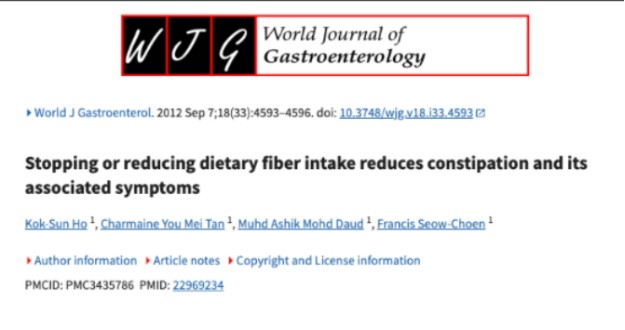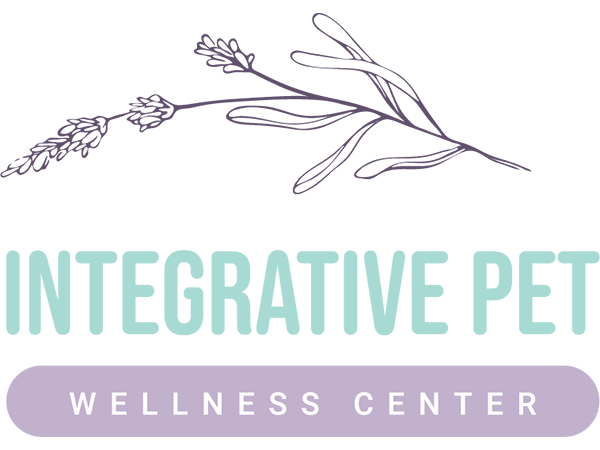But first, can I just say being there in person, meeting people I’d only seen on Instagram or talked to on Zoom, and putting faces to names reminded me that no matter how connected we are online, nothing beats real in-person human connection 🤗.
Those spontaneous conversations, the hugs, the laughter—that’s where the magic happens ✨. What made it extra special is that this year, I took my team along to the Summit.

And this one thing we learned has got me rethinking ….
I was lucky enough to score a front row seat to Dr. Brady Conner’s talk about fiber.
Now, I know fiber doesn’t sound like the most exciting topic, but stay with me here—this might change how you feed your dog, especially if they’re dealing with tummy troubles.
We’ve all been told the same thing, right?
“Dogs need fiber for healthy digestion.” “Add pumpkin for constipation.” “High-fiber food is better for their gut.”
But what if… that’s not the whole story?
Here’s what blew my mind….
Dr. Brady shared studies showing that the LESS plant fiber you give dogs, the BETTER they digest their food and absorb nutrients.
Wait, what? 🤯
If plant fiber was really so important for digestion, wouldn’t we see the opposite? 💁♀️
And here’s the other thing we’ve all been told: plant fiber feeds good bacteria and helps create those important short-chain fatty acids that keep the gut healthy.
But some research shows something different: Dogs actually produce MORE beneficial bacteria and
MORE of those healthy fatty acids when they eat meat-based diets with LESS plant fiber.
So what’s really going on here?
The Gas And Bloat Connection (this one is important)
If your dog struggles with gas or you have a deep-chested breed (like a Lab, Great Dane, or German Shepherd), listen up.
Plant fiber ferments in the gut. Fermentation produces gas. And for dogs prone to bloat—which is a life-threatening emergency—more gas is literally the last thing they need.
Dr. Brady made this point crystal clear: Consider not feeding a high-fiber “diet” to deep-chested dogs.
If your pup is one of these breeds and you’re feeding a high-fiber food, keep reading 👀
The Constipation Story That Changed Everything
Okay, this study was fascinating 👇

Researchers took 63 people with severe chronic constipation. Like going a whole week without pooping. They had bleeding, bloating, and as you can imagine, they were absolutely miserable.
These folks had tried everything.
So the doctors did what every health organization recommends: they added MORE fiber to their diets.
And guess what happened?
Every single symptom got WORSE.
Then they tried cutting the fiber in half. Things got a little better.
Then they removed plant fiber completely from their diets.
All symptoms went to zero. Like, completely gone. These people went from being utterly miserable to having normal, comfortable daily poops 💩
How is that possible if we “need” fiber?
The truth is, the more plant fiber you eat, the more poop you produce (because up to 50% of poop is actually dead bacteria).
If you’re already constipated, making MORE poop is not helping. It’s like trying to push more cars through a traffic jam 🚗🚗🚗 😬
So What Do Our pets Need?
Here’s where it gets really interesting (and hopeful!).
Our dogs and cats DO need fiber— perhaps not just plant fiber. They need animal fiber, which includes things like:
✨Collagen (from bone broth, tendons, cartilage)
✨Cartilage and connective tissue (from chicken feet, trachea, meaty bones)
✨Hide and skin (yes, like dried treats made from animal hide)
Studies show that collagen can also help produce those beneficial short-chain fatty acids.
And get this: zoos discovered that when they left the hide ON the prey they fed big cats (instead of removing it), the cats had dramatically fewer kidney problems and digestive issues.
Interesting, right?🤯
Even more fascinating? Cats might actually ferment animal hair and get nutrients from it. Wild, right? 🐆✨
What This Means for Your Pet
Now, I want to be clear: I’m not saying this is absolutely the way to go for every pet. This was just a perspective I haven’t heard before, and it really got me thinking.
Dr. Brady will be sharing the specific references and studies with me so I can dive deeper into the research. I’m sharing this with you because I find it fascinating, and honestly, I have a few patients in mind who have been struggling with gas and bloat-like issues where fiber doesn’t seem to be solving the problem.
There’s always more to learn and consider. Each animal is unique, and I think we have to stay open to the possibility that there may be other approaches when things aren’t working well for that particular pet. And honestly, science (and especially nutrition) is always evolving! I know it gets really confusing sometimes, but staying open to learning is the best way to get ahead.
If your dog or cat has been struggling with:
👉 Chronic gas or bloating
👉 Constipation that doesn’t improve with pumpkin or fiber supplements
👉 IBD or sensitive stomach
👉 Chronic diarrhea that comes and goes
It might be worth exploring whether a different fiber approach could help.
Here are some things worth considering (always in consultation with your vet or qualified animal nutrition professional):
✨ Bone broth – homemade or high-quality store-bought (we love Green Juju’s)
✨ Collagen supplements – studies show it can improve bloating and digestive comfort
✨ Small amounts of quality animal-based chews – (we like The Real Dog Box)
✨ If you’re including veggies, cook them – cooked is easier to digest than raw fibrous vegetables
✨ Consider a more meat-based diet to see if this helps improve symptoms
A Quick Note About Veggies
I’m not saying never feed your dog vegetables! Lots of dogs thrive with veggies and do great with wonderful poops and healthy microbiomes 💩😂
What I AM saying is: if your pet is sick or struggling with digestive issues, it might be worth exploring whether plant fiber is working against you—or if there’s another approach that might work better for them specifically.
For healthy pets eating a wonderful balanced and varied diet? That’s totally fine!
(But for our kitty friends – they are obligate carnivores, by nature, they eat and digest meat!!)
My Biggest Takeaway
This is exactly why I love integrative medicine. We get to question conventional wisdom, look at the actual science, and figure out what really works for each individual animal.
Your dog is not a cow. Cows have four stomachs designed to ferment plant matter for hours 🐄
Your dog has ONE stomach and a shorter digestive tract.
When we honor what they’re actually designed to eat, amazing things can happen ✨
Want to Talk About Your Pet’s Diet?
If your pet has been struggling with any digestive issues—gas, bloating, constipation, diarrhea, IBD—and you’re curious about whether a shift away from high-fiber foods might help, let’s chat.
For existing clients, just email us at info@integrativepet.com and we’ll get you scheduled.
If you’re new to our practice, you can fill out our new client form here.
And if you’re part of our Concierge Membership, we’ll dive into this topic more deeply in an upcoming masterclass—because there’s so much more to unpack! 💜
I have so many more gems from Feed Real Summit to share with you, including:
👉 The latest breakthroughs in CBD therapy (Dr. Trina had some fascinating new research!)
👉 We may have to stop feeding our pets with food in bowls (think platters instead!)
👉 How hair mineral tissue analysis really gets into the primary root cause health approach
👉 Why sourcing in foods in important, what to look for
👉 Tuning fork therapy!
Thank you for being part of this journey with me. For trusting me with your precious fur babies. For being open to new ideas and willing to question what we’ve always been told.
That’s the unicorn way 🦄💫
Your Unicorn Vet,
Dr. Lily + team


